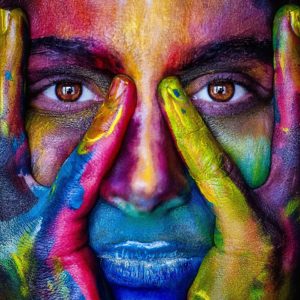In mid-February 2021 I participated in the online dialogue workshop Belonging (inclusion). This dialogue workshop was all about valuing differences and recognizing potential. I joined because I spend a lot of time on this topic for the Diversity and Inclusion Platform of the UMC Utrecht. I’m actually in a “diversity bubble”. But what does inclusion actually mean for people who are not in the profession? What motivates others and can I learn from them?
We started with “I Can’t Breathe” by Lisette Ma Neza, a poem the young word artist wrote in response to the death of George Floyd and the Black Lives Matter movement. It touched me that Lisette wrote so openly about her feelings: “My wall of silence supports my voice not to scream”. She has found her voice, through poem and music. Important, vulnerable and beautiful!
Commitment to being yourself
Inclusion stands for commitment and at the same time being able to be yourself. For some, belonging means doing something for the community and feeling part of it. For others, this means involving people and offering opportunities. Radj Ramcharan (Asha Foundation) shared that it is not always enough to open the doors, but that it is necessary to actively invite and welcome others. And that you can also go to others. You don’t have to look far for this, it starts in your vicinity. The feeling of belonging can also confirm you in, for example, your values, beliefs or lifestyle. When you belong you feel valued, welcome and good. It is important for everyone and it is nice to (be allowed to) belong to something.
An open attitude towards strangers
In the break-out rooms we shared our dreams about Erbij Horen, inclusion and what we could do to get closer to these dreams. It was fantastic to hear everyone’s individual dreams and ideas. Whether it was the dream to make education more inclusive, to meet new people and thereby make your group of friends more diverse or to improve the dialogue in a more diverse society. A participant pitched her plan to build a theater group with various members. The importance of the community, getting to know each other and feeling a connection with each other was central. From adopting an open attitude, especially towards unfamiliar people, stories, beliefs and visions. Knowing that you have stereotypes and that you live in your own ‘bubble’ in order to be able to consciously deal with them and possibly get out. Talking to people, it can bring friendships and a sense of connection and better self-knowledge.
Inclusion starts with you!
Inclusion starts with yourself and how you approach others! We came to the conclusion that everyone belongs to many different groups and frameworks. People often seek each other out who have certain shared qualities, beliefs, visions, backgrounds, etc. But even within these groups we often differ from each other. Belonging to one group does not exclude that we belong to other groups that make us a part of who we are.
As one participant described: “We continuously provide judgments and ratings in our responses. Non-evaluative response is for me a very effective way to contribute to an inclusive society. In concrete terms: I’m going to put yellow stickers in my house again to remind me of this.” Or as another participant said, “Good people bring out the good in people.”
Be proud and vulnerable
For me this workshop was very valuable and I took with me something that I had not expected: confirmation. I told my group that I am vegan and have been involved in self-development for 1.5 years. I regularly notice that others still do not understand this because it does not quite fit the “Dutch standard”. At times this made me frustrated or sad and felt ridiculed and left out. But through the dialogue with my group I have become aware that we are all different from each other and that everyone has “his or her little things”. It was very good to hear that people understood me and that I can be proud of what I do and what I stand for. I realize that now more than ever before. In the safe environment of our group, we made ourselves vulnerable and shared experiences, creating a bond and mutual understanding. And what a nice thing that is!
Cecily Stolte


